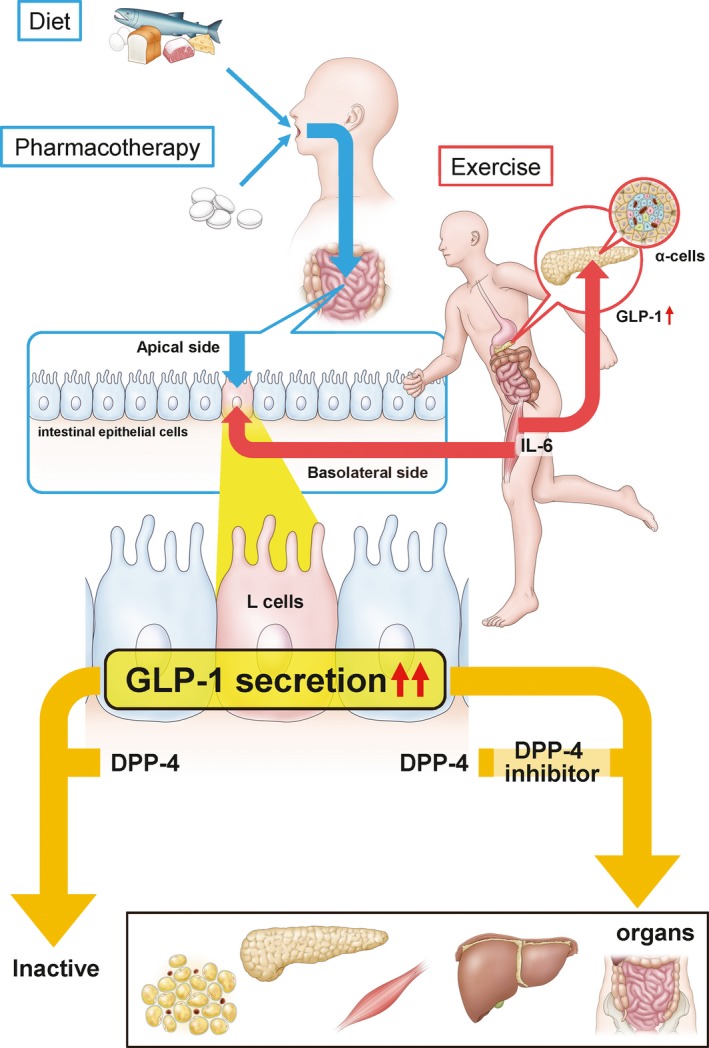Figure 1.

The incretin hormone, glucagon‐like peptide‐1 (GLP‐1) is secreted from intestinal L cells by not only nutrient‐stimulus containing carbohydrate, protein and lipids but also exercise in addition to pharmacotherapy in T2DM patients. The IDEP concept is focused on enhancement of GLP‐1 through changes in the diet, physical exercise and pharmacotherapy. Although GLP‐1 is deactivated by dipeptidyl peptidase‐4 (DPP‐4) except for the neural pathway for the actions of GLP‐1, DPP‐4 inhibitors protect GLP‐1 from degradation. Active GLP‐1 involves positive effects via several mechanisms in pancreas, liver, adipose tissues, muscle and intestines.16 Exercise‐induced interleukin‐6 (IL‐6) concentrations stimulates GLP‐1 secretion from intestinal L cells and pancreatic α cells. Patients with T2DM usually present with comorbidities such as dyslipidemia and hypertension. Therefore, apart from anti‐hyperglycemic drugs, pharmacotherapies with anti‐hyperlipidemia drugs, anti‐hypertensive drugs those have an effect on GLP‐1 release, must be considered for better management of T2DM
